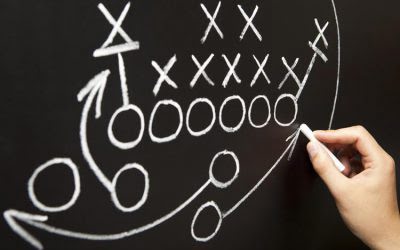It requires individuals to confront the consequences of their addiction and the toll it has taken on themselves and their relationships. This stage sets the foundation for the recovery journey by creating awareness and motivation for change. Experts believe group therapy is superior to individual therapy for people recovering from prescription drug drug addiction recovery abuse. The group setting allows peers to both support and challenge each other, and creates a sense of shared community. Rebuilding close connections with family and friends is essential to successful addiction recovery.
- Detoxification alone without subsequent treatment generally leads to resumption of drug use.
- The extent and quality of the internal and external resources determine the onset, continuation, and maintenance of complete recovery from addiction.
- • Connection—being in touch with others who believe in and support recovery, and actively seeking help from others who have experienced similar difficulties.
Proven Treatment Methods
By actively engaging in the process of addiction recovery, individuals can gradually make these lifestyle changes and create a solid foundation for long-term sobriety and well-being. It’s important to remember that recovery is a personal and ongoing journey, and each individual’s path may vary. There are companies large and small that have recovery-friendly hiring practices. In addition, there are nonprofit organizations such as American in Recovery and the National HIRE Network that specifically help those with addiction or criminal history to find work.
What happens if someone relapses during recovery?
- Each Gateway graduate is encouraged to take advantage of our Alumni Program, a peer support network, to cultivate the relationships that will last a lifetime.
- Community is the relationships and social networks that provide support, acceptance, friendship, love, respect, and hope.
- Knowing where you stand in the stages of substance abuse recovery opens your eyes.
- Most individuals in precontemplation feel that recovery simply isn’t possible for them.
- Behavioral therapies help people in drug addiction treatment modify their attitudes and behaviors related to drug use.
Neuroscientist Adi Jaffe, Ph.D., who himself recovered from addiction, outlines five steps. • Meaning and purpose—finding and developing a new sense of purpose, which can come from many sources. It may include rediscovering a work or social role, finding new recreational interests, or developing a new sense of spiritual connection. The important feature is that the interest avert boredom and provide rewards that outweigh the desire to return to substance use. • Connection—being in touch with others who believe in and support recovery, and actively seeking help from others who have experienced similar difficulties. Inpatient rehabilitation at a full-time facility provides a supportive environment to help people recover without distractions or temptations.
Start Your Recovery Journey Today
Addiction is Sobriety a chronic condition, and studies show that relapse rates are similar for other chronic diseases like diabetes and hypertension. Behavioral change is a key component of recovery because managing addiction is a continuous process, not a one-time intervention. To analyze the literature, the conventional content analysis method was used based on the model proposed by Graneheim and Lundman. Content analysis refers to the understanding, interpretation, and conceptualization of the core meanings of data. According to Polit and Beck (15), content analysis is the process of organizing and integrating stories and qualitative data that results in the genesis of themes and notions.
Residential Treatment
S. National Survey on Drug Use and Health, more than 75 percent of people addicted to alcohol or drugs recover—their condition improves and substance use no longer dominates their life. It is often a long and bumpy path, and relapse is nearly inevitable—but that doesn’t spell the end of recovery. We work with you to create a personalized treatment plan that includes individual therapy, counseling, group therapy and medication-assisted treatment options. People turn to substances of abuse for quick highs, to relieve stress or to cope with other health conditions. But alcohol and other drugs exacerbate symptoms of co-occurring mental health disorders. We teach healthy ways to cope with unpleasant emotions, and we treat all of the underlying causes of addiction.
Seeking Help and Support
Overcoming an SUD is not as simple as resisting the temptation to take drugs. Recovery may involve medication to help with cravings and withdrawal as well as different forms of therapy. Discover expert tips on how to slowly detox from alcohol at home, helping you manage withdrawal symptoms in a safe and controlled way. Naomi Carr is a qualified mental health nurse with several years of experience working with children and adults in the UK. Many teens play vido games but some develop a gaming disorder, leading them to neglect family, friends, and school.




